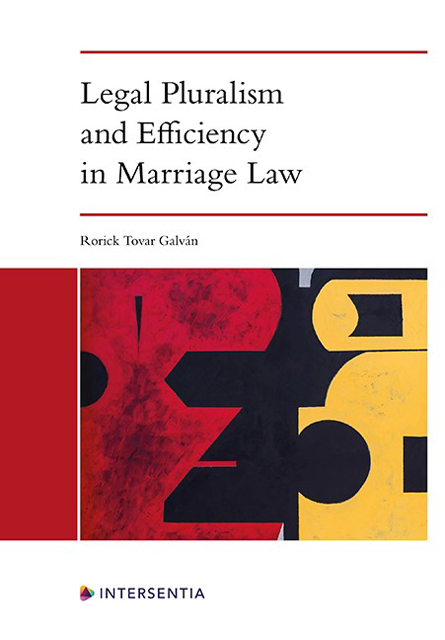Book contents
- Frontmatter
- Dedication
- Miscellaneous Frontmatter
- Foreword
- Preface
- Acknowledgments
- Contents
- List of Cases
- Introduction: Uncertainty and Inconsistency Surrounding the Determination of the Applicable Law in the EU Instruments on Matrimonial Issues
- Part I Economics As A Point Of Departure To Explain The Substantive Rules On Matrimonial Issues
- PART II Economics as a Point of Departure to Build a System of Conflict of Laws For Matrimonial Issues
- Conclusion: Certainty, Precision, Coherence, and Simplicity in the Determination of the Applicable Law
- Bibliography
- Index
- About the Author
Part I - Economics As A Point Of Departure To Explain The Substantive Rules On Matrimonial Issues
Published online by Cambridge University Press: 17 December 2022
- Frontmatter
- Dedication
- Miscellaneous Frontmatter
- Foreword
- Preface
- Acknowledgments
- Contents
- List of Cases
- Introduction: Uncertainty and Inconsistency Surrounding the Determination of the Applicable Law in the EU Instruments on Matrimonial Issues
- Part I Economics As A Point Of Departure To Explain The Substantive Rules On Matrimonial Issues
- PART II Economics as a Point of Departure to Build a System of Conflict of Laws For Matrimonial Issues
- Conclusion: Certainty, Precision, Coherence, and Simplicity in the Determination of the Applicable Law
- Bibliography
- Index
- About the Author
Summary
The aim of this part of the book is twofold: setting forth the contractual nature of marriage as well as the economic rationale behind this legal institution, and showing that an economic rationale indeed underlies many provisions of marriage law in modern legislation. Accordingly, this part is divided into four chapters: In the first one – Chapter 1 – the reasons to consider marriage as a contract and its function as an economic means will be discussed. A hypothesis about the reasons that motivate individuals to get married will be presented. This chapter suggests that marriage can be understood as a device that encourages spouses to make investments in the household, just as it imposes legal consequences in case the relationship ends prematurely or when certain promises made by the spouses are not delivered as agreed. Next, the book focuses on outlining the main tasks of marriage law and describes the economic logic of a number of substantive legal provisions governing the marriage. In Chapter 2, criteria will be discussed to delimit the promises that should be enforced by the courts. This chapter also shows the efficiency of some characteristic remedies provided by the law in the event of a marital crisis. Chapter 3 is focused on providing a conceptual framework that explains the economic rationale of the limitations to party autonomy, as well as the logic behind rules that can be overridden by the spouses. The last section – Chapter 4 – is devoted to summarizing the topics discussed and serves as a prelude to the next part of the book, which is entirely focused on solutions for the issues arising from the potential application of different legislation to marriages with international connotations.
- Type
- Chapter
- Information
- Legal Pluralism and Efficiency in Marriage Law , pp. 41 - 42Publisher: IntersentiaPrint publication year: 2022



